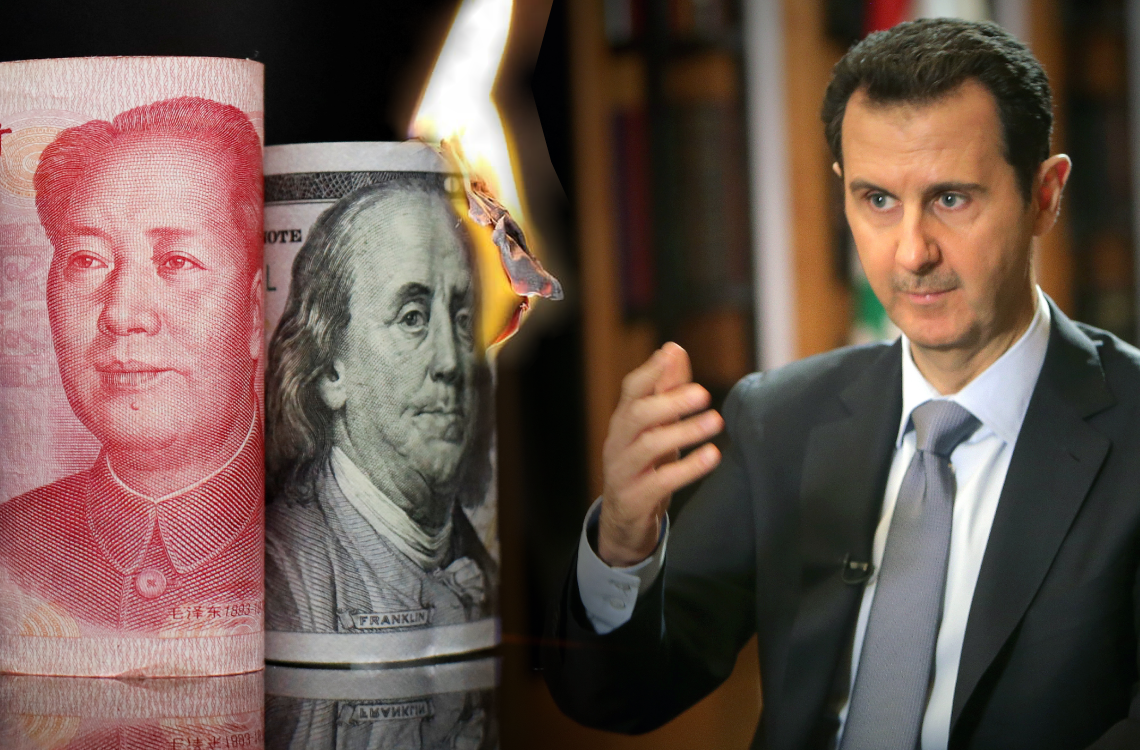In a recent development, Syrian President Bashar al-Assad has called for the abandonment of the US dollar for global transactions and urged the adoption of the Chinese yuan for international settlements.
This move comes as part of the ongoing de-dollarization efforts led by the BRICS nations, in response to US sanctions imposed on Russia following the invasion of Ukraine.
De-dollarization gaining momentum
President al-Assad’s call for the adoption of the Chinese yuan in international settlements comes as the BRICS nations, including Brazil, Russia, India, China, and South Africa, have been increasingly focusing on alternative currencies.
As the United States faces various macroeconomic challenges, a shift towards alternative currencies seems inevitable, with the BRICS nations spearheading this effort.
According to President al-Assad, the world needs China’s political and economic presence to facilitate the necessary global power shift.
Syria has recognized the merit in the ongoing de-dollarization efforts and believes that the BRICS nations can play a leading role in dismantling the US dollar’s status as a global reserve currency.
China’s growing influence in the Middle East
During a meeting with the Chinese Government’s Special Envoy for the Middle East, Zhai Jun, President al-Assad praised China’s mediation efforts that have led to the rapprochement between Saudi Arabia and Iran, both of which are applying for membership in BRICS.
He believes that the improvement of their relations will positively impact the stability of the entire region.
Zhai Jun assured President al-Assad that Beijing would continue to support Damascus in international forums and their battle against hegemony, terrorism, and external interference.
China’s diplomacy has been active in the region and beyond as it seeks to expand its influence on the global stage.
China has also initiated talks about the potential enlargement of BRICS and is trying to promote the use of the yuan in international trade while supporting efforts to reduce dependence on the US currency.
Iran and Syria: Strengthening bilateral cooperation
In a recent meeting with Syrian President Bashar al-Assad, Iran’s Minister of Transport and Urban Development Mehrdad Bazrpash called for the expansion of bilateral cooperation between the two countries in various sectors, including banking, energy, transit, transportation, and tourism.
He highlighted the potential for utilizing port access to establish shipping lines, thereby boosting exports and imports between Tehran and Damascus.
While Iran has fought for a decade to support the Syrian government, it currently has a small share of Syria’s trade, losing out to financially stronger players.
Iranian parliament member Heshmatollah Falahatpisheh stated in May 2020 that Iran had invested $30 billion in Syria and needed to recoup it.
With reconstruction costs in Syria estimated between $250-$400 billion, strengthening economic ties with regional countries is crucial.
Syria’s call for the adoption of the Chinese yuan for international settlements is a significant development in the ongoing de-dollarization efforts.
With the BRICS nations leading the charge, it remains to be seen how this development impacts the Middle East and the potential membership of Saudi Arabia and Iran in the BRICS alliance.





